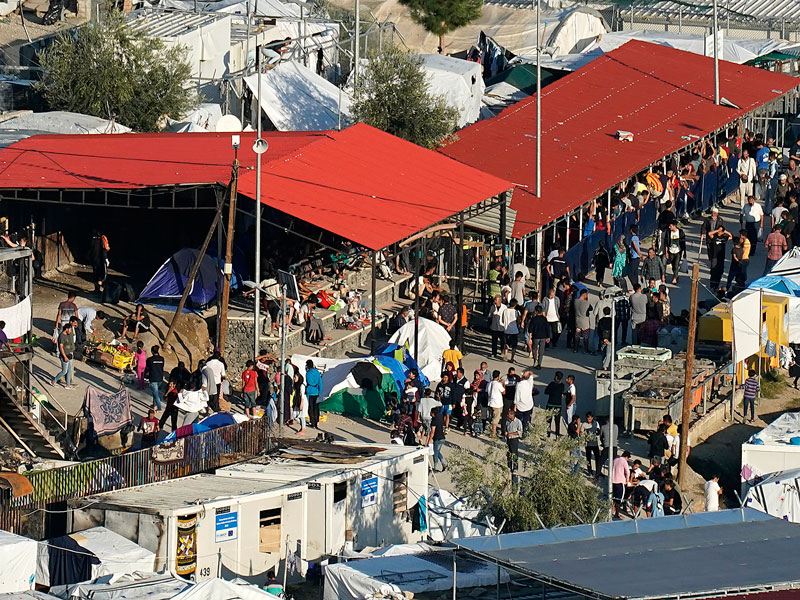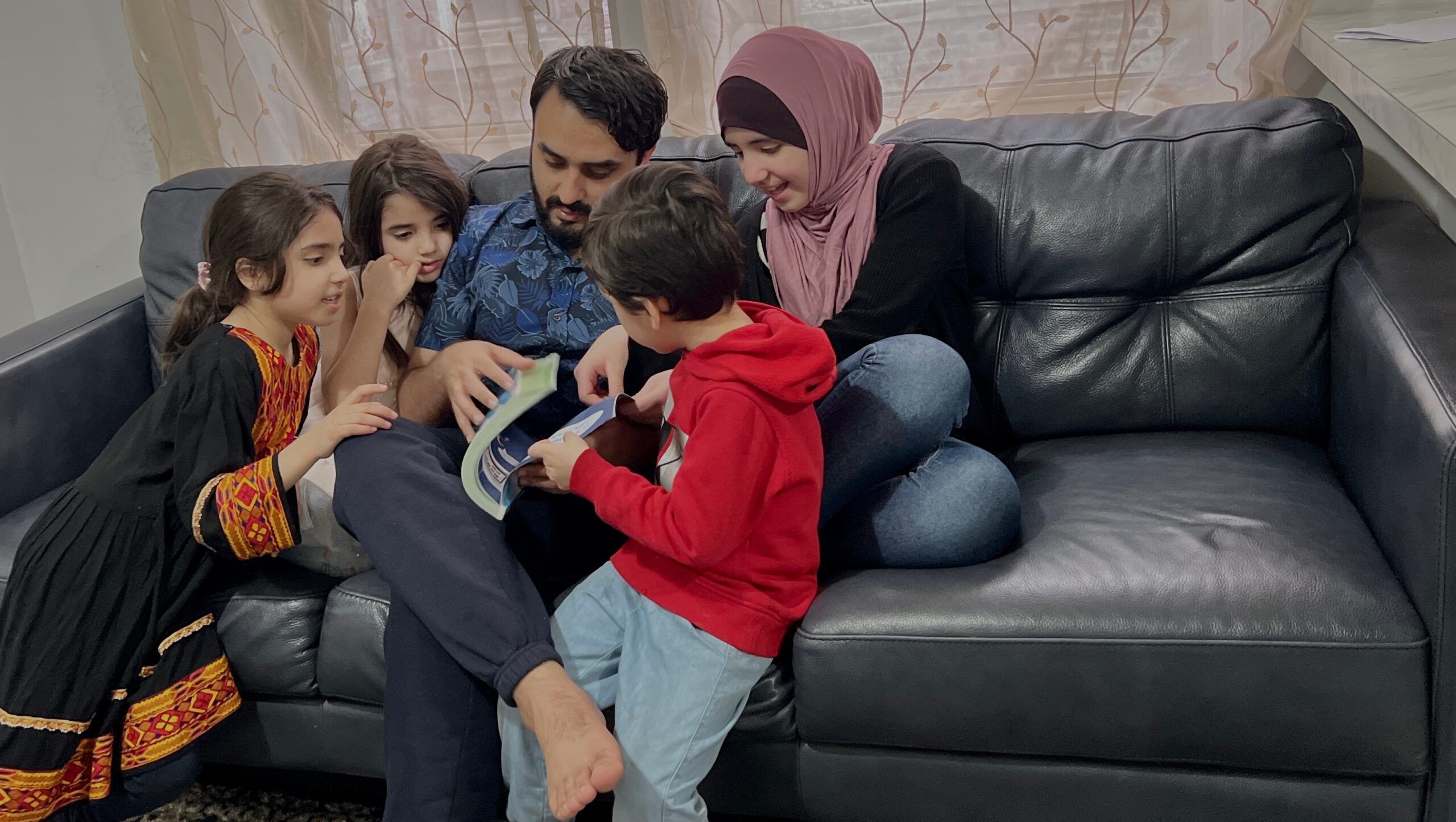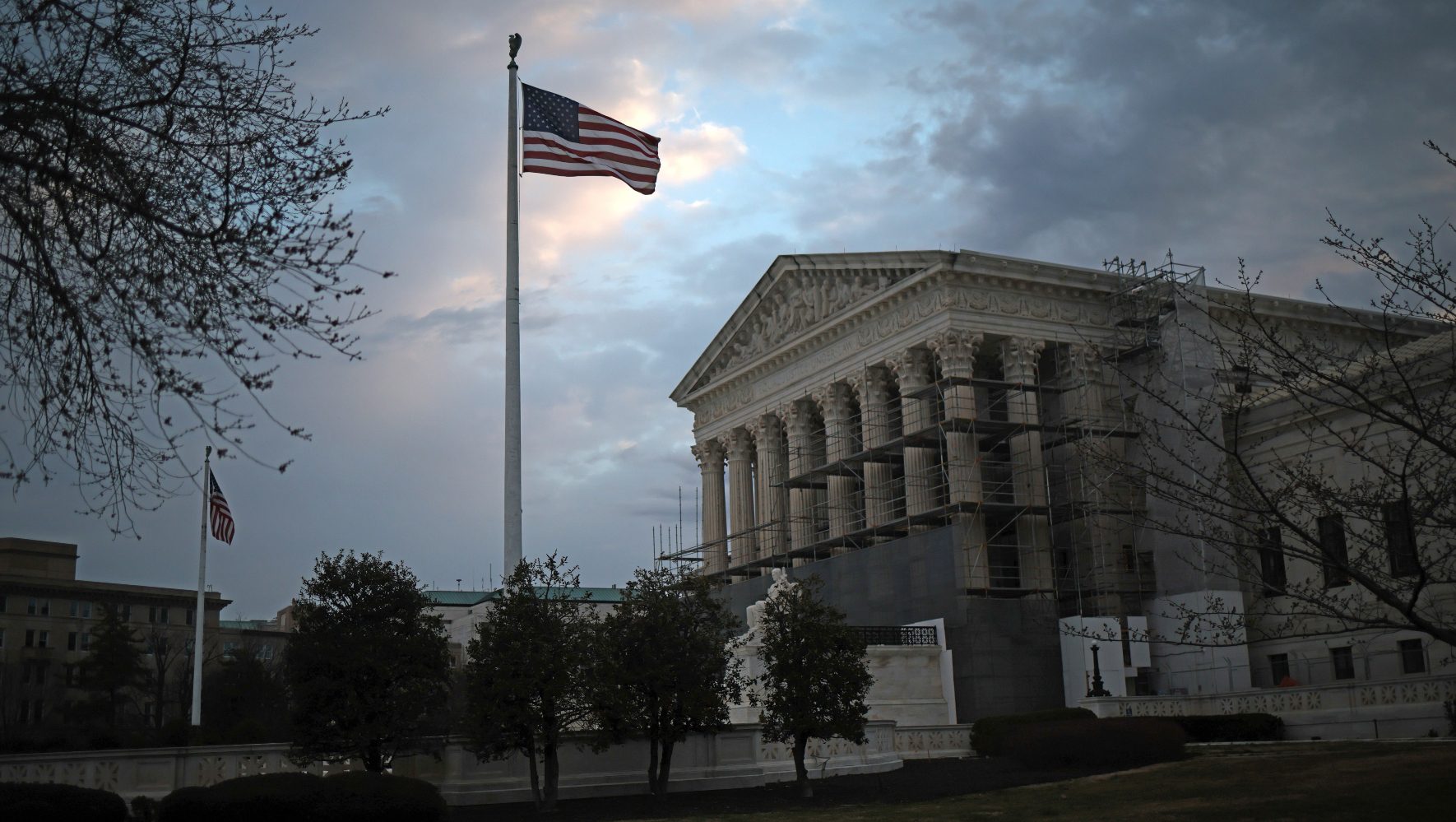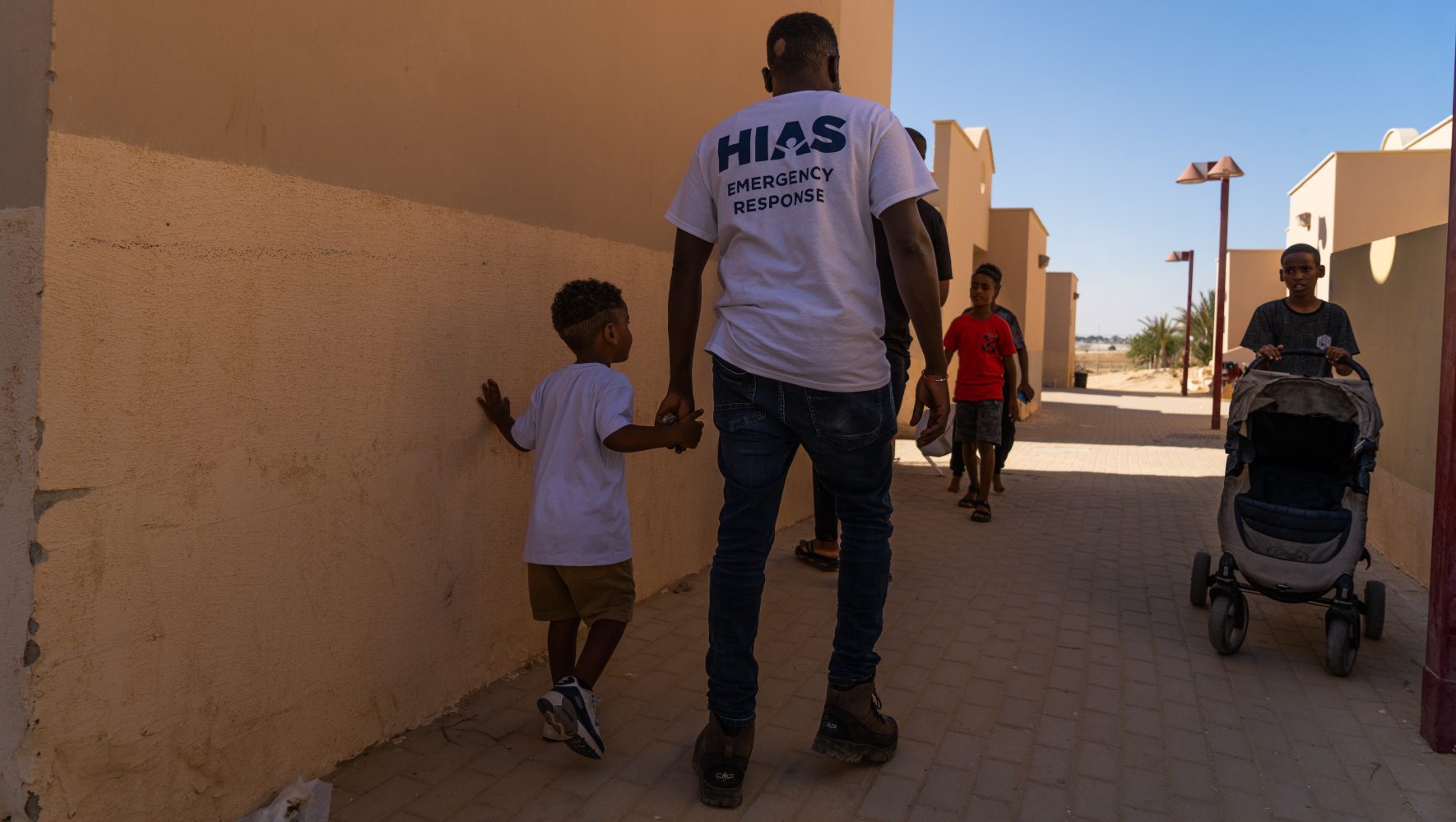Conditions in Greek Refugee Camp Continue to Deteriorate
By Levani Talakhadze, HIAS Greece Advocacy and Communications Officer
Nov 13, 2019

A general view of the Moria refugee camp which was built for fewer than 3,000 people but now contains over 14,000. October 09, 2019 in Mytilene, Greece.
(Christopher Furlong/Getty Images)
The Greek island of Lesvos has been at the center of Mediterranean refugee flows for the last five years. In 2015 and 2016, hundreds of thousands of asylum seekers arrived on the island. The number of arrivals dropped in 2017 and 2018, but this year there has been a notable increase in Lesvos, with more than 19,000 people arriving in the first ten months of 2019.
Today, the vast majority of nearly 18,000 refugees present on the island live in the Moria Refugee Camp. The camp’s official capacity is 2,840 individuals, however this year, the population has swelled to nearly 15,000 (14,739 as of November 2019).
HIAS provides free legal assistance throughout the asylum procedure, takes select cases to combat hate crime, and ensures refugees have access to legal, social, and economic rights in Greece. But the situation in Moria, originally built as an army camp, can be justifiably characterized as a humanitarian crisis. “The living conditions are precarious and people’s dignity is stripped from them,” said HIAS Greece Program Coordinator Elina Sarantou.
Food shortages mean that some days as many as 500 people go without food. Also, some refugees do not even try to get on line for food distribution for fear of being assaulted. What might also come as a shock to many people is that the population of more than 14,000 in Moria was left for months with only one doctor, and the screening of mental health-related issues had completely stopped due to the absence of medical staff, psychologists, and social workers.
Lack of medical and psychosocial services has also led to great gaps in vulnerability assessments, which are used to determine provisions and policies related to asylum seekers, such as lifting of geographical restrictions, placement in suitable shelters, and appropriate protection measures. Without vulnerability assessments, asylum seekers who need individualized protection may not receive them and also cannot leave Lesvos due to geographical restrictions.
There were three deaths in Moria in the last three months, the most recent a 49-year-old Afghan mother of a small child who was killed in a fire. Moria does not have an evacuation plan for emergency situations such as the one that killed this woman, and once again the Greek state failed to live up to its obligation to guarantee the safety of the residents of Moria.
There are also special concerns regarding unaccompanied minors. In August a 15-year-old unaccompanied minor from Afghanistan was killed by another unaccompanied minor, and while overpopulation in Moria may have been a factor, there is a greater issue of responsibility on the part of the state. In some places within the camp there is a complete lack of security and protection. There are many gaps and limitations in the protection of unaccompanied minors in Greece; a lack of suitable shelters for unaccompanied minors has led to cases of homelessness.
On November 1, the Greek parliament adopted a new asylum law that the government says will streamline the lengthy asylum process and facilitate the deportation of rejected asylum seekers. The law brings major changes, including an extension of administrative detention, which could allow for refugees to be detained for up to 36 months; new restrictions on asylum seekers’ right to work and a more limited definition of “family members. In addition, recognized refugees will have to leave their accommodation within two months, putting thousands of people at risk of homelessness. HIAS Greece believes the law eliminates important protections and would risk further undermining the already precarious situation of asylum seekers and refugees in Greece.
HIAS Greece continues to work every day to achieve better conditions for refugees and asylum seekers, as well as protection of unaccompanied minors, providing free legal assistance and advocating for their rights.


